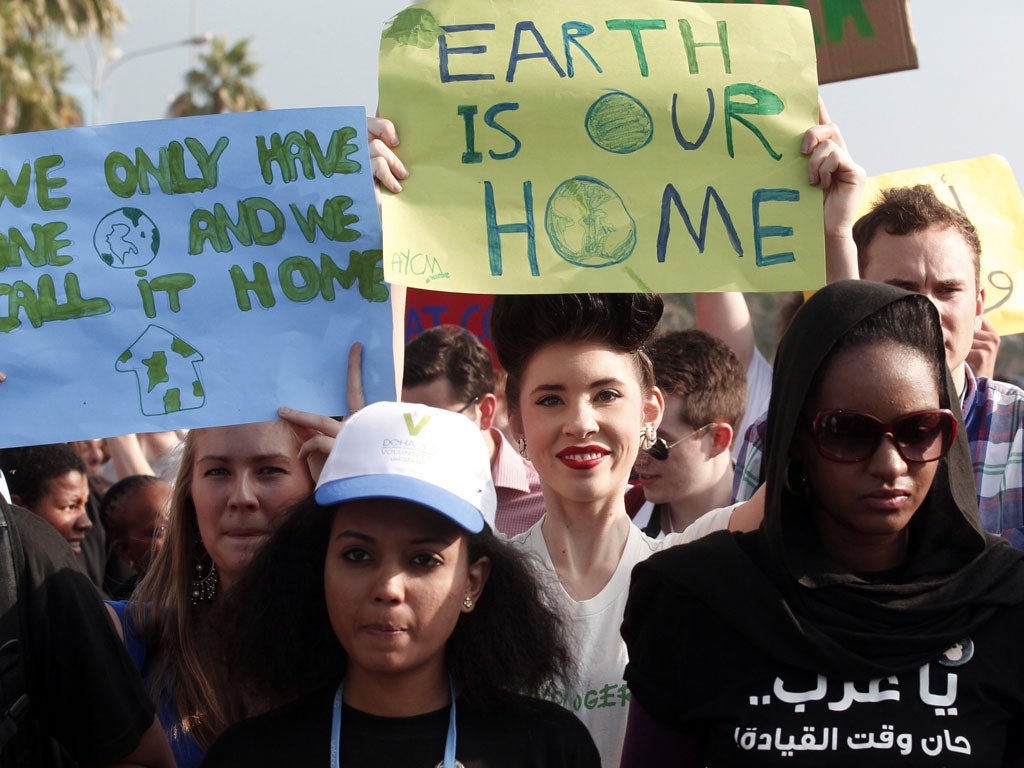We are losing climate change race, says Davey

Your support helps us to tell the story
From reproductive rights to climate change to Big Tech, The Independent is on the ground when the story is developing. Whether it's investigating the financials of Elon Musk's pro-Trump PAC or producing our latest documentary, 'The A Word', which shines a light on the American women fighting for reproductive rights, we know how important it is to parse out the facts from the messaging.
At such a critical moment in US history, we need reporters on the ground. Your donation allows us to keep sending journalists to speak to both sides of the story.
The Independent is trusted by Americans across the entire political spectrum. And unlike many other quality news outlets, we choose not to lock Americans out of our reporting and analysis with paywalls. We believe quality journalism should be available to everyone, paid for by those who can afford it.
Your support makes all the difference.The world is losing the race to keep global warming in check, the Energy Secretary has conceded.
Ed Davey delivered the candid assessment of the international community's collective failure on the eve of major UN negotiations in the Gulf state of Qatar on a new treaty to combat climate change.
The Liberal Democrat minister said attempts to prevent global temperatures from rising more than two degrees Celsius above the pre-industrial level, generally regarded as global warming's danger threshold, were not on course to succeed.
"As things stand, the world is plainly not on track to keep the global temperature increase from climate change below two degrees," Mr Davey told The Independent before leaving for Qatar. "The UN Environment Programme said last week that at best, current commitments [to cut greenhouse gases] would take us somewhat short of half way towards a climate-safe trajectory; and a World Bank report published the same week showed some of the dangers of a world warmed by four degrees.
"Anyone who engages seriously with the science is right to be concerned."
Average global temperatures have already risen about 0.8 degrees C above pre-industrial levels. Attempting to keep the rise to below two degrees is the official aim of the UN's Climate Convention, and the official policy of Britain and the rest of the EU.
The conference in Qatar's capital, Doha, marks the beginnings of talks aimed at constructing a comprehensive new agreement to cut carbon dioxide and other greenhouse gas emissions that are causing the warming that will be legally binding on all countries of the world.
The treaty, which should be signed in 2015 and come into effect in 2020, will for the first time place a legal obligation to cut CO2 on the world's three biggest emitters, China, the United States and India, which between them account for nearly half of all the emissions going into the atmosphere.
But many observers are increasingly concerned about the so-called "emissions gap" – the divergence between the CO2 emissions limits that are necessary to keep below two degrees, and what is actually being emitted. The so-called "emissions gap" is widening every year, according to the UN Environment Programme referenced by Mr Davey.
However the Energy Secretary, who will lead the British delegation in Doha, said he still saw reasons to be hopeful. "Two degrees is still within reach if we can muster the political will," he said.
The conference is scheduled to finish on Friday.
Join our commenting forum
Join thought-provoking conversations, follow other Independent readers and see their replies
Comments